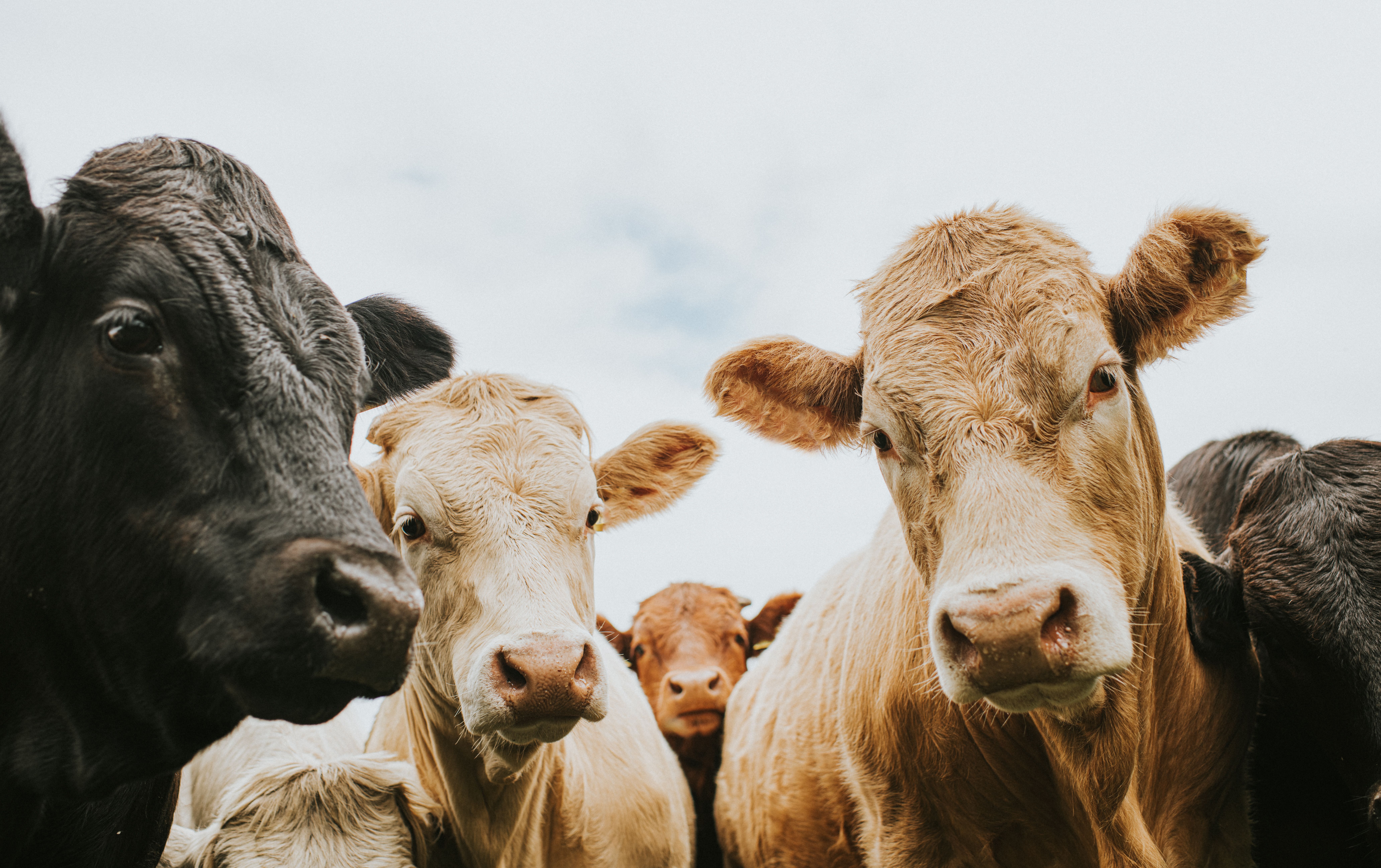Cow burps measured from space, revealing contribution to climate change
A flatulent first.
For the first time ever, scientists have measured cow burps from space.
This might seem strange, but when cows burp, they release methane into Earth's atmosphere, and methane is a powerful greenhouse gas, or a gas that contributes to global warming.
To be clear, the cows themselves have done nothing wrong in simply passing gas. But, as human activity remains the leading driver of greenhouse gas emissions, researchers are investigating how the agriculture industry could be contributing to climate change.
In the new study, researchers used high-resolution satellites owned by the Montreal-based company GHGSat Inc. to study methane emissions from the Bear 5 cow feedlot near Bakersfield, California. They found that, on Feb. 2, the lot was emitting a range of 977 pounds (443 kilograms) to 1,472.69 pounds (668 kg) of methane per hour.
If these emissions were sustained for a year, it would add up to over 5,000 tons of methane to Earth's atmosphere, according to a statement.
Related: Satellites discover huge amounts of undeclared methane emissions
"This has not been done at an individual facility scale for the agriculture sector, as far as we know," Brody Wight, a sales director at GHGSat, said in the same statement. "The idea is that we need to measure first before you can take real positive action."
Breaking space news, the latest updates on rocket launches, skywatching events and more!
You might think that cow farts are a bigger deal than cow burps when it comes tomethane emissions. But it turns out that flatulence only makes up a small amount, roughly 5%, of the methane generated by cattle. The remainder comes from burping, with methane released through a cow's nose, according to the statement. Cows burp so much because gases are created when their stomachs break down grass and other food.
Agriculture is a major influence on climate change, and it is the largest source of methane emissions, according to the International Energy Agency. The agriculture industry contributes roughly 10.5% of all greenhouse gasses in the U.S., according to the U.S. Department of Agriculture. And, as of Jan. 1, there were 91.9 million cows and calves living on farms in the U.S., the USDA reported separately.
Despite the industry's immense size and greenhouse gas emissions, this is the first measurement of its kind made from space with satellites.
Methane from cows is particularly tricky to track on the ground because the emissions are diffuse and so they blow around in the wind, Wight said. This makes satellite observations especially important in gathering data about methane emissions from cattle on Earth. Measuring methane from space also has a number of significant advantages, allowing researchers to scan large swaths of the planet's surface at once.
"Finding big sources quickly is the best way we think to have an impact in the near term," Wight said.
GHGSat aims to ramp up their satellite observations, from scanning Earth on a weekly basis using two satellites to doing daily scans with a fleet of 10 satellites by early next year, Wight added in the statement.
Email Chelsea Gohd at cgohd@space.com or follow her on Twitter @chelsea_gohd. Follow us on Twitter @Spacedotcom and on Facebook.

Chelsea “Foxanne” Gohd joined Space.com in 2018 and is now a Senior Writer, writing about everything from climate change to planetary science and human spaceflight in both articles and on-camera in videos. With a degree in Public Health and biological sciences, Chelsea has written and worked for institutions including the American Museum of Natural History, Scientific American, Discover Magazine Blog, Astronomy Magazine and Live Science. When not writing, editing or filming something space-y, Chelsea "Foxanne" Gohd is writing music and performing as Foxanne, even launching a song to space in 2021 with Inspiration4. You can follow her on Twitter @chelsea_gohd and @foxannemusic.

